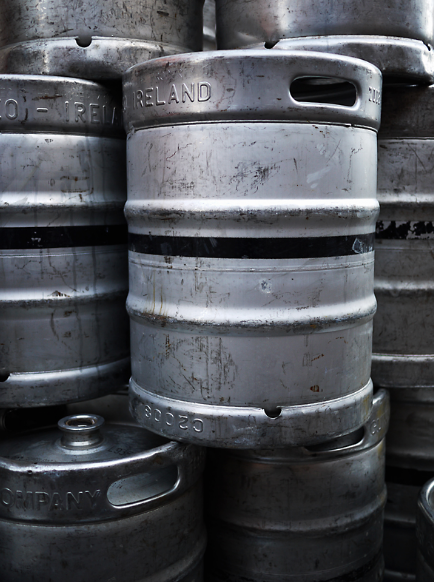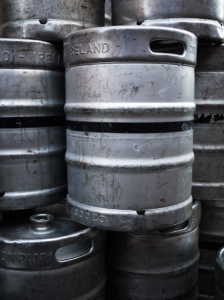

DePauw University intends to ban hard alcohol from registered parties and allow kegs instead for the first time in years.
The decision was made as part of an initiative called the Collaborative. Made of faculty, administrators, students and alumni, the Collaborative works to solve problems surrounding high-risk drinking behaviors on campus.
The Interfraternal Council (IFC) proposed this change last spring. “IFC was really engaged in the process in terms of sending letters to nationals and others” whose approvals the University and fraternities needed said Julia Sutherlin, assistant dean of campus life and director of campus alcohol initiatives. “At the end of the day this was something we felt that we could work with students and say that in some cases, some events, and with some approval, we can do this.”
Drinking trends at DePauw differ from those at other places in the United States. “Nationally, alcohol usage of high school students is going down. At DePauw, our usage rates, particularly our high consumption rates, are going upward,” said Sutherlin. “So while all the numbers and data related to alcohol abuse, statewide, nationwide, are moving in a safer direction, our statistics are moving in a more dangerous direction. So we needed to do something.”
According to President Mark McCoy, in 2014 Indiana colleges reported 37 percent of student populations binge drank, defined as five or more drinks per sitting. President McCoy said this number has since fallen to 28.9 percent. However, DePauw reports 64 percent of students binge drank in 2014. The number is now reported to have risen to 65 percent.
The administration is working to encourage social cultural changes on DePauw’s campus. “We are very serious about student health and safety. I think that generally if you look at college campuses over the last 30-40 years, there is a shift from beer and wine to hard alcohol,” said President McCoy. ”In my mind, one big difference between beer and wine and hard alcohol is that it is very hard to reach dangerous blood alcohol levels on beer and wine, because you’re just full and...in most cases, you don’t drink enough beer to put yourself in the dangerous blood alcohol content level.”
The Collaborative started last fall in order to make DePauw a more healthy community. Last fall, they proposed 10 initiatives for DePauw to implement, based on data from CollegeAim, a national matrix ranking effectiveness of certain campus initiatives.
The collaborative decided on 10 initiatives to work on, the kegs being one of these initiatives. The others include more training on how to intervene in situations where dangerous consumption occurs, changes within tailgating, continuing to use breathalyzers on students, health care screening, enforcing the 21 drinking age, more morning classes, and more individual feedback with students.
“Sometimes what doesn’t work for dealing with alcohol is focusing just on one thing. So we are trying a lot of those things; some may work and some may not,” Sutherlin said. The collaborative will be choosing eight more initiatives for the University to work on this year.
This rule will also apply to registered parties in University Owned Housing (UOH), which includes all the houses and apartments for upperclassmen, excluding Rector Village. Rector Village is excluded because it is built similarly to a residential hall, but the administration is considering including Rector Village in the future.
“It doesn’t apply only to events in Greek houses,” Sutherlin said. “The kegs can be used with approval at UOH or Greek events.”
Sutherlin has been receiving good feedback about the change. “We just finished sharing this with Greek officials...and they seemed enthusiastic about it and some even took the forms to start having those conversations with their chapter advisors.”
Students are feeling generally positive about the change. “I honestly think that switching to kegs would be a great idea,” said senior Sarah Ertelt. “Having so many young people all consuming cheap hard alcohol together is dangerous, and it can make parties stressful and dangerous for everyone involved. Would people still get too drunk with kegs? Sure. But I think there would be less hospital visits and it would bring back that 80's frat vibe.”
